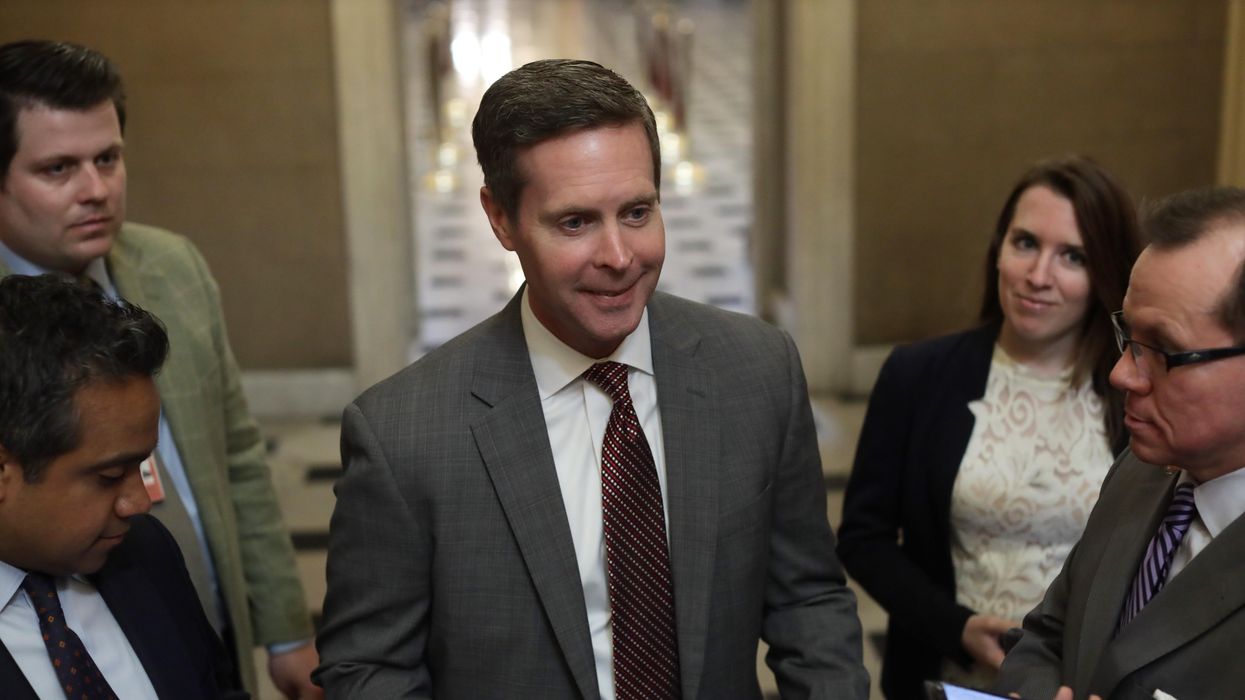In September, after nearly two years of work, the House Select Committee on the Modernization of Congress released its final report — a package of eight dozen recommendations to help make Congress more effective and responsive to the public.
As the majority Democrats map out their priorities for the new Congress, they should commit to the committee's reauthorization.
Much has been written about the committee's work as a bipartisan bright spot. Its members are laudatory about the space it provided for cross-aisle cooperation, and outside advocates have applauded the output: bundles of detailed recommendations that would genuinely improve how the House does its job, from reforms to the budget process and regulatory oversight to staff retention and administrative efficiencies. There is little doubt about the quality of the committee's product.
But there are other compelling reasons that House Democrats should support reauthorization. Beyond the obvious need for more high-quality ideas, sustaining (or making permanent) the Modernization Committee would also be good politics.
First, a congressional reform panel gives members interested in the health of the institution a structured place to funnel their expertise.
Political scientist Roger H. Davidson once coined these reform-minded members "procedural entrepreneurs." In every era, he observed, "at least a few members of Congress cultivate a lively interest in the institution itself: how Congress works, how its virtues can be nurtured, how its effectiveness can be improved." Davidson was studying the Legislative Reorganization Act of 1946. But the observation still holds true.
Some members now, as then, are particularly drawn to the machinery of the institution, but only rarely have an avenue to do much about it. "Internal House operations have always interested me," says GOP Rep. Rodney Davis of Illinois, and yet his assignment to the Modernization Committee was "the first opportunity in over a decade to take a deep, internal look at how the House functions."
Providing that opportunity at all times is important. The absence of a dedicated space to study, debate and propose reforms does not do away with calls for reform — but it does risk making those calls more unwieldy and, potentially, fractious.
For example, the arrival of the so-called Watergate Babies, the huge class of House members elected after President Richard Nixon resigned in 1974 on a commitment to make the government more honest and transparent, precipitated a period of bitter intraparty battles. The newcomers arrived with fresh and incredulous eyes, and with the help of elder reformers adopted a sweeping agenda to remake Congress. It was a distinctly confrontational approach, where reforms were not so much thoughtfully studied and debated as decreed and relentlessly fought for.
Those that came to pass — from televised committee sessions to floor procedures allowing more votes on divisive issues — generated a range of unintended consequences.
The virtue of a Modernization Committee is not only that it tackles tough institutional issues, but that it provides an insulated and contained space for doing so. Reform topics that are politically tricky ( earmarks), have thorny partisan histories ( the Office of Technology Assessment), or are genuinely complex ( biennial budgeting) enjoy a holding space for careful treatment by reform-minded members.
Second, while the Modernization Committee's work may not strike the same political points as members' work on health care, jobs or climate change, it still pays political dividends.
Coverage in local papers has been congratulatory and approving. A newspaper in the western Washington district of Derek Kilmer, the committee's Democratic chairman, framed the panel's work as promoting "civility and bipartisanship," for example. And while it's unlikely many voters care about the congressional calendar or hearing formats, most do care that the people they send to Congress are making concerted efforts to improve through compromise a broken branch of government.
Perhaps most importantly, the Modernization Committee represents a distinctly better approach for updating Congress than past waves of reform — and one less likely to so radically upset existing power structures that the reforms are put to bed quickly.
The history of legislative reform is characterized by big bursts of energy followed by murky legacies.
The 1946 law reorganizing Congress — which included radical budget reforms, streamlining committee jurisdictions and the start of merit-based staffing — was historic in ambition. In practice, though, most of its cornerstone changes were scuttled. Senior members jettisoned the budget reforms; committee members didn't much care for more independent staff; and a proliferation of subcommittees limited the law's capacity to rein in a sprawling committee system.
Then, as now, a special panel had been formed and given just two years to propose improvements. Its short lifespan put it under significant pressure. Most of its ideas were imported from political scientists and were not the product of internal deliberation and compromise. And the committee was neither truly representative of the membership nor meaningfully engaged the regular committees that would be responsible for turning proposed reforms into reality. And so the approach destined the law's far-reaching provisions to disappointment.
Adaptive changes that stick require time to socialize and iterate. They benefit from internal grappling among those who will be affected. Like any complex body, Congress is more amenable to disciplined and incremental changes than hurried and sweeping ones.
The Modernization Committee, under celebrated leadership, has made strenuous efforts to involve members across the institution in its work. It has demonstrably committed to careful study and deliberation of ideas — and worked collaboratively with the committees responsible for implementing its 97 proposals.
To cut its lifespan short now would be to terminate a worthwhile experiment that seems to be on a different path than its predecessors.
The politics of change never suggest good odds, especially at the Capitol. And the congressional history of select committees that push through big changes don't enjoy rosy histories. Reauthorizing the Modernization Committee would signal support for a different, smarter approach. It's a safe bet for any party committed to better government.



















Trump & Hegseth gave Mark Kelly a huge 2028 gift